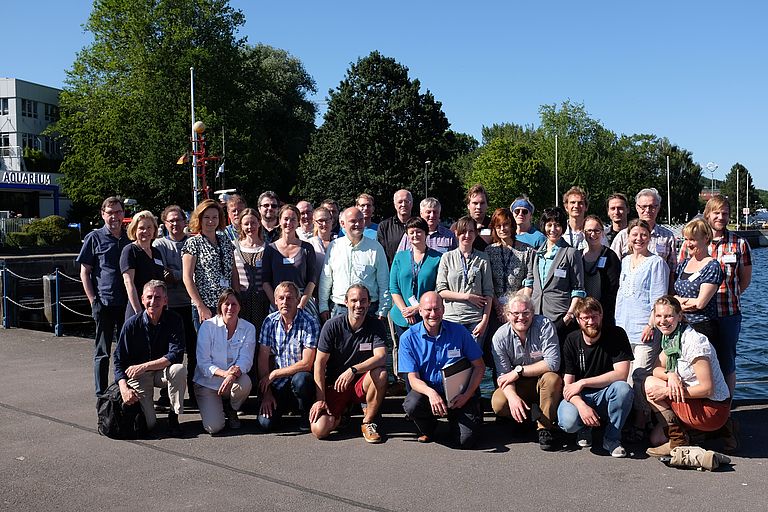Expert meeting on biodiversity in the Baltic Sea
EU BONUS project BIO-C3 is hosting annual meeting and international summer school at the GEOMAR
03.07.2015/Kiel. Biodiversity has long been considered a major driver of terrestrial ecosystem functioning. Surprisingly, in the marine realm this understanding has taken hold much more recently – despite the large role of biodiversity, which ultimately benefits humans strongly. This includes ecosystem stability under human exploitation, healthy fish stocks, clean water and the buffering of nutrient inputs. At the same time, many open questions regarding the specific role of biodiversity remain. Scientists of the BIO-C3 project (“Biodiversity changes – causes, consequences and management implications), funded by the EU BONUS (Science for a better future of the Baltic Sea region) programme and the German BMBF, want to address the current knowledge gaps, with a specific focus on the Baltic Sea. This week, 40 BIO-C3 scientists from 13 institutes from 8 nations around the Baltic Sea are attending the first annual BIO-C3 project meeting organized by Prof. Thorsten Reusch and Dr. Jan Dierking (Research Unit Evolutionary Ecology of Marine Fishes at the GEOMAR Helmholtz Centre for Ocean Research Kiel). For 4 days, they discuss new scientific results on environmental fluctuations, biodiversity, adaptation, foodwebs, and management approaches in the Baltic. They also coordinate BIO-C3 activities for 2015/2016, including the integrative research cruises with RV ALKOR in the context of a pan-Baltic cruise network by the BIO-C3 partners.“The Baltic is an ideal setting to advance our understanding of biodiversity. Its species composition is geologically speaking very young, since current salinities have only existed for a few thousand years. At the same time, species diversity is relatively low, so species extinctions or arrival of non-indigenous species can have pronounced effects”, explains project coordinator Professor Dr. Thorsten Reusch.
Directly after the annual meeting, the first EU BONUS BIO-C3/BAMBI (Baltic Sea marine biodiversity – addressing the potential of adaptation to climate change)/INSPIRE summer school, “The Baltic Sea: a model for the global future ocean?”, led by Prof. Reusch and Dr. Dierking and with the participation of 13 renowned lecturers from 7 institutes around the Baltic Sea, will begin with a tour of the GEOMAR on Sunday. This event also received co-funding from the Future Ocean Cluster of Excellence. 35 international PhD students and postdocs from countries around the Baltic will learn more about Baltic oceanography, species’ adaptations to the extreme conditions in the Baltic Sea, human pressures like fisheries, and new approaches to manage Baltic resources sustainably. Ultimately, they will explore the question whether the Baltic can serve as model system for sustainable management of global systems under climate change and human exploitation. “At the same time, the summer school provides a unique opportunity for the young scientists to create a young scientist research network and put their own scientific projects into a larger context”stresses Prof. Reusch.



